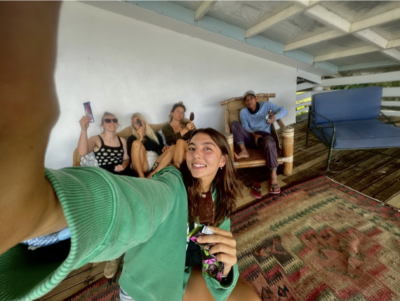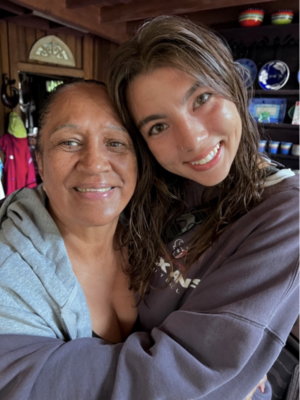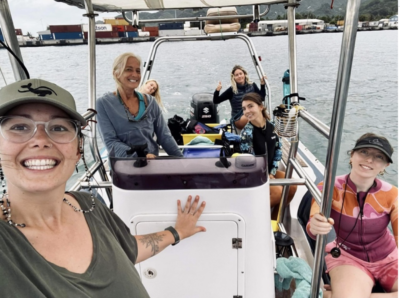I hate to burst your bubble, but despite my previous blog posts in which I appealingly glorify my encounters with whales, I must admit that in my month of being in Rarotonga, I have only been out on the boat with the whales a handful of times. But this is not due to a lack of want or a lack of effort.
As a new research assistant, I entered this experience with a grossly idealized idea of what consisted of whale conservation work. In my head, I envisioned endless days on a beautiful blue expanse of open ocean, watching whales breach and play around me, while being surrounded by a group of beautiful, women scientists. I expected work in the form of long, tiresome days, raw sunburns, and data analysis. While some days are as I imagined, they consist of only half of the story.
The other fifty percent consists of a grind. Every day at Cook Islands Whale Research, the team (which is, in fact, a group of hot women scientists) and I are met with a series of simultaneously unexpected and colossal challenges that seem, at best, tangentially related to whales, and mostly consist of seemingly random tasks of manual labor. These undertakings range from fixing car belts to hauling blue whale vertebrae to renovating and decorating the Paradise Inn to be a whale education center to the morally uncomfortable duty of debt collection.
The Moral of the Story: Being a whale biologist requires being a jack of all trades.
And no one is more qualified for this job than Nan Hauser. Since her arrival on the island, Nan does not quit. Without fail, she seizes the day by attacking the projects at hand (which, to me, seem never-ending and excessively out-of-my-depth), no matter how massive, miniscule, or technical the operation. And her gung-ho, go-get-it, DIY attitude inspires all of us around her to work just as hard. Despite a to-do list that, like a persistent garden weed seems to grow longer and more convoluted each day, we consistently end the day exhausted and having accomplished a million things.
So far, I have acquired skills in: cooking, gardening, interior design, tire replacement, graciously pleading for funding, and power washing various types of surfaces. While these are not skills I expected to gain, they are ones that I have learned are just as important to whale biology as the scientific ones that accompany them. And these lessons have been paramount in my development as a research intern; whale biology is not smooth sailing (literally). Commitment to whale conservation requires you to be a mechanic, a renovator, a gardener, and a laborer.
I have always wondered why more people don’t pursue careers in cetacean conservation. It is undeniable that humans experience an exceptional connection to whales. Perhaps it is due to their intelligence, sociality, and altruistic nature that mirrors our own; maybe whales remind us of those qualities that reveal the best of our humanity, which so often become lost within ourselves. Or perhaps whales represent a promise that wild spaces can still exist. Whales were once viewed as economic jackpots and therefore hunted into near extinction to be made into soaps, oils, animal feed, and corsets. Now, due to massive conservation efforts, humanity’s conception of whales has morphed into that of an embodiment of pristine nature, and many populations have since recovered. Whales, now, represent an escape from our built landscape into the majesty of true, untouched Nature. They are a conservation success story.
But, the Fact of the Matter is: Whale conservation is really hard work.
No one recognizes the grunt work behind an operation like Cook Islands Whale Research. Its dirty, hands-on nature is so easily disguised behind a snowy idealization of whales, and once revealed, tends to deter people from the work. But, for the people I have the privilege of working with, every task, no matter how menial it seems, is completed without complaint and in the name of the whales. And this is the nature of a true conservationist.
The Most Important Lesson: If you want it, you must make it happen.
The Unsung Heroes Behind CIWR This Season So Far:
Nan Hauser
Katherine Waru
Gustowo
Julia Graeter
Gloria Harvey
Ella Ruland
Francesca Radford
Callie Cho
Nico Ransome
Disha Kabra
Travis Horton





